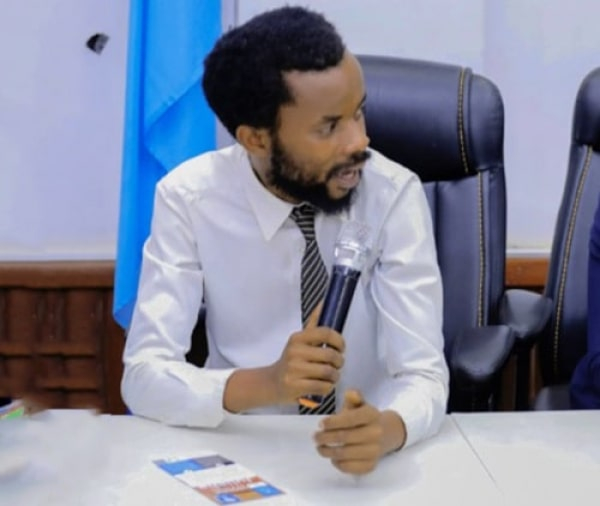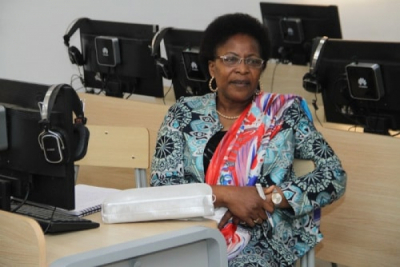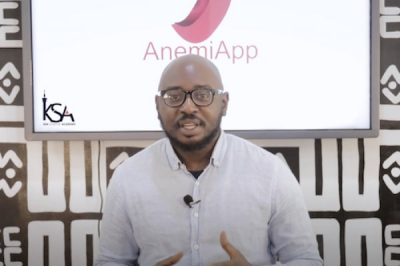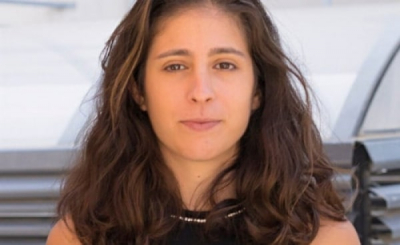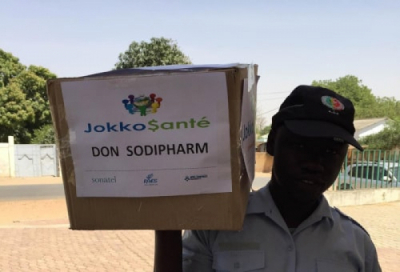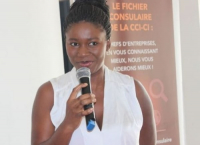The startup ecosystem has been booming over the past few years. This boom was accelerated by the digital transformation that ensued from the Covid-19 pandemic. The popularity of that ecosystem is to such an extent that it is attracting a growing number of atypical profiles.
Blaise Matuidi (photo), an Angolan native and former French professional footballer, fully entered the tech world after being a business angel for some time. Last March 22, he announced the launch of a tech investment fund.
Called Origins, the investment fund will focus on supporting Web3, video games, and crypto startups. The fund was launched in collaboration with Ilan Abehassera, co-founder and CEO of Dots, Salomon Aiach, head of German fund Earlybird’s French branch, as well as Yohan Benalouane, Matuidi’s childhood friend who plays for the Greek football club Aris Salonika.
"My interest in technology started a few years ago. When I arrived in the United States, I met Ilan who helped me make some investments. Then we got the idea to create Origins. With all the individuals contributing to the investment fund and, thanks to their popularity with some 160 million fans currently, we can spearhead very beautiful stories,” says Blaise Matuidi, the 2018 World Cup Champion.
Origins brings together internationally renowned personalities. They include over 50 athletes like Paulo Dybala, N'Golo Kanté, Olivier Giroud, Presnel Kimpembe, Kingsley Coman, Miralem Pjanic, and Antoine Dupont. The fund is also supported by several figures from the business world.
"Footballers are not much engaged in the tech sector although they are large consumers [of tech products]. We are going to help them invest in that sector [...] They must be aware that footballers have short careers so they need to plan their future," says Blaise Matuidi.
Ilan, Salomon, and I are learning “every day”. “We do it stepwise like it is done for football careers. What we have to do now is to win the startup world cup,” he adds.
Origins plans to stake €100,000 to €500,000 in early-stage projects, but its overall investment capacity has not been disclosed yet. It has already invested in two projects. The first is Ugami which provides financial solutions and rewards to gamers while the second is Yumon, an NFT platform.
Muriel Edjo
Response to gender-based violence remains poor in DR Congo. To change the game, Didier Bacigale and Amisi Musada have designed SOS Secours, an application to alert and assist victims.
Didier Bacigale got the idea of such an application when he was still a student. He reported that his neighbor was always beaten by her husband but that no one ever helped her. He then worked on the project with Amisi Musada (pictured) and that is how SOS Secours was born.
The two entrepreneurs created a tech startup called Yangu in 2019 thanks to the DRC Human Rights Hackathon event, organized by Internews. They won the competition with their SOS Secours solution.
Official data showed that the DRC records an average of 1,000 cases of gender-based violence every day. With Yangu’s app, victims can now easily seek help when in danger. The user just has to shake his/her phone 5 times (after the app is installed on the phone) and immediately, an alert and a geolocation are sent by message to relatives and to a network of local associations that are partners of SOS Secours.
Beyond helping victims, the solution works as a real-time data generator for all entities engaged in the fight against gender-based violence. “Many organizations say they have trouble accessing information and especially stats about gender-based violence. There are few real-time statistics. To have data, we are obliged to resort to health centers although we know that not all victims go to the hospital,” explained Amisi Musada.
In four years, the duo has managed to attract many partners, including Internews DRC, the French Institute of Bukavu, as well as associations like Femme au Fone and AFEM. Currently, the app is only operational in the province of South Kivu where the startup Yangu is based. The founders are now working on lobbying with telecom operators for SMS alerts.
Aïsha Moyouzame
The government of Benin has in recent years made e-education a priority. The need for such a system has been highlighted with the Covid-19 pandemic, prompting the government to accelerate the process.
Benin wants to build a solid e-education system inspired by the model used in Côte d'Ivoire through the “Digital School” project. Last March 18, the Higher Education Minister, Eleonore Yayi (pictured) led a visit to the Lycée classique d'Abidjan, one of the sites where the project is rolled out.
With the Minister of Digitalization Aurélie Adam Soule, Eleonore Yayi visited two multimedia rooms and a data center. The first one is equipped with more than thirty computers, two giant touch screens, and last generation cameras and is intended for courses by videoconference. It is interconnected by optical fibers to 149 other sites across the country. The second room, equipped with computers and a high-speed Internet connection, allows students to follow courses remotely. The data center contains all the educational data produced during the courses, the teaching manuals, etc.
The Minister said her department is already in talks with tech giant Huawei to reproduce the Ivorian model in Benin. This measure aligns with the ambitions of President Patrice Talon, the official said. With e-education, the Beninese government wants to give young learners access to experts, the most current research, and the most advanced knowledge. With digital technology, interacting with education professionals remotely will be facilitated. This will enable the country to gradually build a strong human resource to boost growth.
Muriel Edjo
The founder of Genity Sarlu has great ambitions for his solution. He does not only want to improve healthcare system in his country but across the whole continent.
Care for people with sickle cell disease in the Democratic Republic of Congo remains poor. Patients in remote areas have more difficulties. To bring a solution to this problem, Arnold Wogbo, founder of the startup Genity Sarlu, created AnemiApp.
The promoter, a graduate in Electronic Engineering, reveals that he got the idea for his application after working with the NGO "Réseau Drépano SS" as a communication officer. He says he noticed, while questioning sickle cell patients, that they had many needs but not enough specialist doctors to answer them.
The app is available on Android. It provides users with several health tips to limit disease-related crises and improve their daily lives. The information on medicines, vaccines, screening, blood transfusions and major health events, available on the application, comes from doctors, the Ministry of Health and nutritionists. It is also possible to have directions to pharmacies and health centers that provide such care.
People who do not have a smartphone can use the service via a USSD code. Anemiapp is currently operational in Kinshasa but Arnold Wogbo plans a national coverage in the short term. Anemiapp generates revenue through various user subscriptions and commissions from its services.
Anemiapp won the 2020 award of the Pierre Fabre Foundation's Observatory of e-Health in Southern Countries and the Orange Prize for Social Entrepreneurship in Africa and the Middle East in 2018 (Poesam).
Adoni Conrad Quenum
WeMove, created in 2018 by Mariem Sellami (pictured), Hichem Ben Hmida, Mohamed Khelil, and Mejdi M'barek, is a fitness and wellness marketplace that offers its users a wide choice of sports classes via a network of gym partners across the country. Various sports activities such as yoga, dance, and boxing are offered every week by the partners. The user can combine several activities depending on his desires and budget.
Mariem Sellami explains that "many people do not practice sports activities because access to gyms is sometimes expensive. Not only is the membership quite expensive, but it’s also not reimbursed if not used.” WeMove, therefore, provides an alternative that enables on-demand sports sessions without having to pay membership fees first.
The platform uses the "pay as you go" model like telcos. The user recharges their credit account and uses it to buy unique access to the gym of their choice via the platform. When the user purchases the credit, they receive a QR code that gives them access to the gym. The app is free and available on Android and iOS. “With our startup, working out is like going to the movies! Our customers have access to a multi-room and multi-activity platform with a payment per session and on-demand, " says Mariem Sellami.
The company currently operates in Greater Tunis and wants to expand to other major cities in the country. The founders also plan to diversify the offers by proposing independent coaches and organizers of sports events in addition to gyms.
The solution that was originally a simple graduation project was nominated for the 4th edition of "Samsung Fast Track", a support program initiated by Samsung Tunisia. The company has also been labeled "Startup Act" in 2020, a status on which it capitalizes to seek support funds for its expansion. Its selection last February to join Orange Fab Tunisia will give it more technical means to achieve its goals.
Adoni Conrad Quenum
The use of illegal drugs (also known as street drugs) has increased in Africa. Studies have found that people's limited financial means to seek medication from professional doctors are at the root of the phenomenon. With his solution, Adama Kane wants to enable poor families to have access to safe products without paying a penny.
Seven years ago, Adama Kane launched Jokkosanté, a digital community pharmacy solution, to allow more Senegalese to access quality medicines without necessarily spending money. Today, the service benefits thousands of people. It works on a system under which anyone who has leftover medicines that are still usable can deposit them in public health centers. Professionals in the centers will then sort the medicines and make them available to the neediest. The depositor must first have an account on the JokkoSanté mobile app, which, with each deposit, awards points that are equivalent to the value of the given medicine. The depositor can spend those points to acquire other medicines or transfer them to someone else.
For those who do not have medicines to exchange, JokkoSanté has set up a cross-funding mechanism. On the platform, companies, NGOs and associations can finance the donation of medicines to population segments of their choice. Recipients are informed by SMS of the name of their donating company. Such a system can enhance the visibility and social impact of companies.
JokkoSanté seeks to put an end to the waste of medicines; eliminate the illicit sale of medicines; and help the poorest populations to have better health. "I had my first child in 2013. A month before he was born, my wife and I were tidying up our room to make some space for him. I noticed when we were in the room that we had accumulated a lot of medicine boxes during the pregnancy, most of which we did not even use. So that’s how I had the idea of sharing my unused medicines with people who need them," Adama Kane explains.
The solution received seed funding from Orange to develop the beta application and launch the experimental phase. Orange also provided the startup with its service platforms for SMS and USSD exchanges. The service has won several awards, including the International Telecommunication Union's Recognition of Excellence certificate, the African Entrepreneurship Award for the best African project in an unexplored field, and environmental protection in 2015. In 2016, it won the Pierre Fabre Foundation's e-Health Observatory Award as well as the Grand Prize in all categories of the international e-Health Trophies competition organized by Castres-Mazamet Technopole.
Ruben Tchounyabe
Gabon will soon have a data center that will manage and store cadastral data, announced the Minister of Housing Olivier Nang Ekomie.
According to Le Nouveau Gabon, the Gabonese authorities deemed this measure necessary in an international context marked by the resurgence of cybercriminal attacks or computer hacking.
For the acquisition of supplies, installation, and configuration of the Data Center, tender documents have been prepared and sent to the Directorate General of Public Procurement (DGMP) for a no-objection opinion.
Gabon also plans to interconnect the provincial land registry offices to repatriate, centralize and process land information to carry out the work on the same information system. On this issue, tender documents have also been sent to the DGMP for a no-objection opinion.
SG
Demand for delivery services increased during the coronavirus pandemic. In Guinea, where the sector remains underdeveloped, Sékou Lamine Coyah Bangoura founded a startup to meet demand.
The service is offered via the mobile app mycolismart available only on Android. Users can buy various types of goods such as food, medicine, clothing, school supplies, etc., and get them delivered. They can schedule the drop-off and pick-up of clothes at the laundry. The platform also allows them to book the shipment of goods depending on the transport schedules and benefit from discounts. Moreover, the solution integrates a service that allows users to donate items to the needy in orphanages.
Mycolismart has more than 21 independent motorcycle drivers for deliveries within cities, and more than 200 partner vans for inter-city deliveries. To access the solution, users are required to open an account that allows them to track all of their purchase and shipping operations. Mycolismart has partnered with Orange to facilitate service payments.
Six years ago, Mycolismart won second place in the Orange Prize for Social Entrepreneurship in Africa and the Middle East (Poesam). The prize is worth 30,000,000 Guinean francs (nearly 3,000 euros).
Adoni Conrad Quenum
To increase the safety of boda boda (motorcycle cab) users in Kenya, the government has announced that it will issue biometric plates with a unique color code for each county to facilitate the identification of drivers. The decision was announced yesterday by Governor Ann Kananu.
The plates will integrate information such as the name, identification number, and telephone number of each owner and/or driver, their area of operation, etc. These biometric plates will also be equipped with anti-counterfeiting features such as holograms, watermarks, and laser markers to allow police to easily locate them.
The governor said that this measure will help reorganize the boda boda sector. “This will help us identify the real boda boda riders and the rogues who have infiltrated the industry. Some people pose as boda boda riders yet they are criminals. However, they have assured us that they will identify such elements and have them arrested,” she added. The digital identification of boda boda follows the meeting held on Thursday between the governor and the Association of boda boda on the series of new regulations applicable to motorcycle cabs. The meeting came after President Uhuru Kenyatta (pictured) called for a nationwide security crackdown on rogue boda boda drivers on March 8 after a motorist was assaulted along Wangari Maathai Road in Nairobi County.
“I have given an executive order for petty offenders with documents to have their motorcycles released. However, no boda bodas will get into the city center until we have streamlined the sector,” President Uhuru Kenyatta said, stressing that “your boda boda license is not for you to harass or to strip our women of dignity.”
Adoni Conrad Quenum
The Ivorian entrepreneur Christelle Hien Kouame (pictured) won the 2021 Challenge App Africa with her edtech solution “Prenez les feuilles”. The solution is an educational platform for students in Côte d'Ivoire.
To make her idea a reality, the marketing and communications engineer invested funds from her communications agency to develop the solution and, once that was done, she officially presented it to the Ivorian Ministry of Education. The solution was then validated and made available to students, for homework and exams.
Later, Christelle Hien Kouame bettered her offer by including new learning tools to challenge students. "We then integrated three other components to our platform: motivation through rewards by offering gifts for quizzes and exercises completed correctly within a given timeframe, career guidance by talking about jobs with different career paths, and finally short podcasts about general knowledge broadcast via the WhatsApp channel," she said.
Through her startup, Christelle Hien Kouame wants to improve the national success rate. In addition to its educational role, the platform helps students who do not have all the textbooks, to have access to lessons on different subjects directly on their mobile phones. The objective of "Prenez les feuilles" is to give access to school programs to as many people as possible. The app is also intended to be the best tool for preparing for school exams.
In 2019, the edtech company Eneza Education bought the project. As one success leads to another, Christelle Hien Kouame won the 6th edition of the Challenge App Africa organized by the media RFI and France24 in 2021. The prize is worth €15,000.
Today, 6,000 students regularly use the online platform, and the app version launched in early March already has almost 2,000 downloads. Christelle Hien Kouame aims to reach students outside her country. She is already planning an expansion strategy, starting with Senegal by 2025.
Aïsha Moyouzame
More...
Two Kenyan entrepreneurs, Brian Muriu (pictured, left) and Alistair Gould (pictured, right), have developed a solution to enable Kenyans living abroad to pay their bills back home directly.
The app -Tulix- allows better tracking of expenses and ensures the security of transactions. Often, the diaspora sends money for special purposes back home, but the amount ends up being misappropriated by the recipients. Tulix comes as an answer to this problem.
The app took part last March 10 in the Demo Day organized by venture capital fund Antler for early-stage companies. It provides access to over 100,000 businesses and institutions instantly and directly via the M-Pesa mobile payment service. It can also be used to pay for necessities such as hospital bills, school fees, etc. The Tulix wallet is reloadable with a bank card and users can define expenses and allocate the necessary amounts. They can also track their spending, which allows them to plan various financial allocations. When a transaction is completed, Tulix sends notifications via messaging and email to the originator of the payment about the status of the transaction.
Brian Muriu, who holds an Honors Degree in Electrical Engineering, explains that the idea for Tulix came from his own experience. "It usually started with me receiving a phone call from my relatives living and working in the United States late at night. They would call to inform me of the secret code I needed to use to retrieve the money they had sent via a service such as Western Union or Moneygram during their work break. The withdrawal process is often very tedious.”
Brian Muriu assures that the app keeps no record of payment information, including that relating to bank cards that may have been used to reload wallets. He claims that personal information is kept secure.
Adoni Conrad Quenum
While visiting Eco Park, Cameroon, Bryan Pemwoya realized that many people did not know about the gorgeous tourist sites his countries held. Thus, he decided to create TourCMR, an application that integrates, progressively, all 1,000 tourist sites listed in Cameroon. With the help of the AFCON, which took place in the country last January, the number of downloads of the app took off.
It took a decade for the former young innovator to become the boss of a tech company specializing in the modernization of agriculture. He has developed many solutions that facilitate the work and improve the yield of farmers.
In Niger, the company Tech-Innov has managed to build a solid reputation among farmers over the past nine years. The founder Abdou Maman Kané (pictured) has strived to make his company a national and global reference with the many innovations developed to help local farmers.
The computer scientist and entrepreneur made a name for himself in 2011 by winning the first place of the Orange Prize for Social Entrepreneurship in Africa and the Middle East with his remote-controlled irrigation system "Télé-irrigation". According to him, this idea, which came from his own experience as the son of a farmer, has been in his mind since 2005.
When he was younger, he noticed how difficult it was for his parents and other farmers to access water for their activities. They struggled to carry water several times a day over long distances to regularly water their crops. He then started to think of a way to help them. That is how he came up with the idea to not only improve their working conditions with ICTs but also put an end to manual watering.
In 2013, Abdou Maman Kané created Tech-Innov, a company specialized in the promotion and marketing of agricultural and irrigation technology solutions. With this startup, he marketed Tele-irrigation system, a hardware and software kit composed of a tank connected to a pump and a network of pipes installed in a field. The pump is connected to a box equipped with a SIM card. The farmer simply dials a code from his phone to activate it and start watering. Users can also access real-time information such as temperature, humidity, rainfall, solar radiation, air speed and quality to know when to water.
Abdou Maman Kané also developed other solutions such as the smart bio-fertilizer, the drinking water kiosk in rural areas, automatic watering, and mobile weather. These achievements have earned him several awards including the second prize Climate Startup COP22, the third prize of the Young African Social Entrepreneur of Libreville (2015), the Hassan II World Grand Prize for Water (2015), the Medal of Ecological Creation in Nice (2013), and a medal at the International Exhibition of Inventions of Geneva (2012).
Ruben Tchounyabe
Between the high prices and the poor condition of some real estate properties in African cities, people are finding it difficult to get decent housing. With his platform Spleet, Akintola Adesanmi facilitates renting through a home loan solution.
Former product manager at Guaranty Trust Bank Plc (currently known as Guarantee Trust Holding Company) and eTranzact, a payments company, Akintola Adesanmi (pictured, right) has a strong background in banking and fintech. Since 2018, he has been running Spleet, a startup providing a platform where people have access to home loans and a wide selection of properties.
The goal is to provide a solution that allows tenants to find understanding landlords. However, while Spleet was a good plan for tenants, it was not quite the same for landlords. It took the solution 15 months to integrate 16 landlords and about 101 spaces on the platform. The co-founder said he realized that most landlords prefer to receive their lease once rather than 12 times a year to mitigate the risk of default. He co-founded Spleet with Daniella Ajala (pictured, left).
“Growth was slow on the landlords’ side. We just couldn’t add as many landlords as we wanted to on time. But on the tenants’ side, we had great occupancy rates—an average of 90% month-on-month occupancy rates,” Adesanmi told TechCabal. So it became clear that this model would not be sustainable in the long run. After more than 3 years of trying to evolve his market, Akintola Adesanmi wanted to tailor his offering to both tenants and owners. To do so, he applied in 2021 to the accelerator program of MetaProp, a New York-based VC firm focused on the real estate technology industry. Spleet became the first African startup to complete the six-month program, which ended last month, and on March 15, the startup announced $625,000 in pre-seed funding led by MetaProp VC with participation from several investment bodies.
Spleet's new business model now allows tenants to apply for a loan to pay the full amount of the rent, then spread the repayment over up to 12 months. In this way, tenants can continue to pay the rent monthly and landlords who want annual payments can also be satisfied. This solution quickly won over new customers, and Akintola Adesanmi was able to get back on track. A beta version of Spleet's offering was launched this month, and it has already logged more than $10,000 in applications.
Now, the entrepreneur intends to make Spleet the go-to platform for residential real estate in Africa, especially since many African countries are affected by the housing deficit problem, with rental costs sometimes very high.
Aïsha Moyouzame



